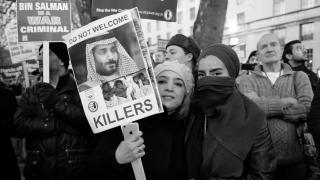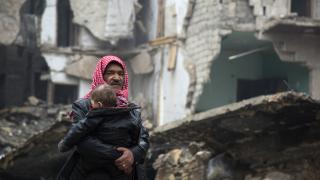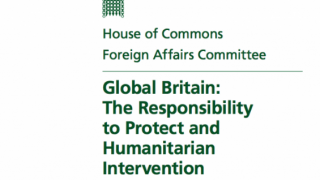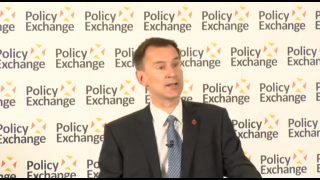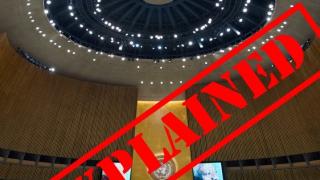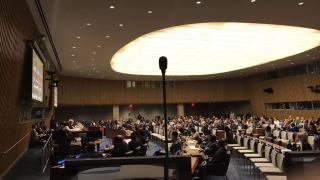
The UN General Assembly (UNGA) convened yesterday to discuss the “Responsibility to Protect" (R2P), a political commitment endorsed by all states to prevent atrocities across the world. This year’s meeting is the 9th UNGA dialogue on R2P and focused on the Secretary-General’s report: “Implementing the Responsibility to Protect: Accountability for Prevention.”
The R2P doctrine calls upon the international community to make protecting civilians from atrocity crimes (war crimes, crimes against humanity and genocide) a top priority. It places the onus on states to protect their own citizens, but also demands the international community step in when states fail to take action.
UN officials, delegates and civil society organisations convened to deliver their views on António Guterres’ first R2P-related report as Secretary-General and share their perspectives on upholding the principle of the responsibility to protect. Laurel Hart, Outreach and Campaigns Officer, represented UNA-UK.
Peter Thompson, President of the General Assembly, began by introducing the “Accountability for Prevention” theme and emphasised the need to strengthen moral, political and legal responsibilities within the R2P doctrine. Mr Thompson highlighted the reality that some states have been unable and unwilling to fulfil their responsibilities and in some cases, failures to act have for too long been overlooked.
UN Secretary-General António Guterres followed with remarks reinforcing his broader agenda for prevention. He stated that the UN "must pay far greater attention to addressing problems before they escalate" and emphasised that it is now “time to move beyond conceptual debate and to move forward to active implementation". Mr Guterres raised the concern that the responsibility to protect still generates some discomfort for a number of states and urged "open and concerned discussion” to overcome differences.
Regrettably the Secretary-General missed the opportunity to express the applicability of such an R2P-related discussion to the current situation Myanmar’s Rakhine State, where many tens of thousands of ethnic Rohingya are at severe risk of identity-based atrocity crimes. A day earlier he had called on the authorities in Myanmar to put an end to violence but failed to mention R2P. This seeming unwillingness to cite the doctrine with regards to a serious ongoing situation reduces the much-needed preventative effect that his intervention could have.
The Secretary-General’s comments were followed by a panel discussion with the UN’s Special Advisor on the Prevention of Genocide, Adama Dieng, Under Secretary-General for Political Affairs, Jeffrey Feltman, UN Special Advisor on the Responsibility to Protect, Ivan Simonovic and Administrator of the UN Development Programme Achim Steiner to discuss the implementation of R2P across the three pillars of the United Nations: human rights, peace and security and sustainable development.
In the UK’s statement, Ambassador Rycroft welcomed the Secretary-General’s focus on accountability and reaffirmed the UK’s long-standing commitment to bringing perpetrators to justice. Mr Rycroft went on to highlight the work the UK has done to push the UN Security Council into passing a resolution to preserve evidence of crimes committed by ISIL in Iraq.
On prevention Mr Rycroft mentioned that the UK believes the "most decisive way to prevent atrocities is to prevent and manage conflict in the first place". He emphasised that the UK supports the Secretary-General in using his powers under the UN Charter to focus the attention of the Security Council and ensure that "early warning is the first step: second step early action".
Ahead of the event, UNA-UK released recommendations for how the UK could champion the responsibility to protect, and made the case that this represents a key opportunity for the UK to make a positive contribution on the world stage, and to turn the Government's commitment to an outward-looking "Global Britain" into a reality. These recommendations remain outstanding.
During the dialogue, civil society organisations were invited to make statements. The International Coalition for the Responsibility to Protect, of which UNA-UK is a member, called for member states to invest in building and institutionalising relationships with civil society and local actors, particularly women, youth and racial, religious and ethnic minority groups, in order to ensure a more coordinated and holistic approach to atrocity prevention.
The meeting provided a valuable platform for discussion on how states can fulfil their responsibility to protect and transform the principle into practice. However, the debate also exposed a lack of will from some member states and a continued lack of understanding and agreement on the way forward when politics and the principle meet.
Photo: The UN Secretary-General opens discussions. Laurel Hart/UNA-UK

